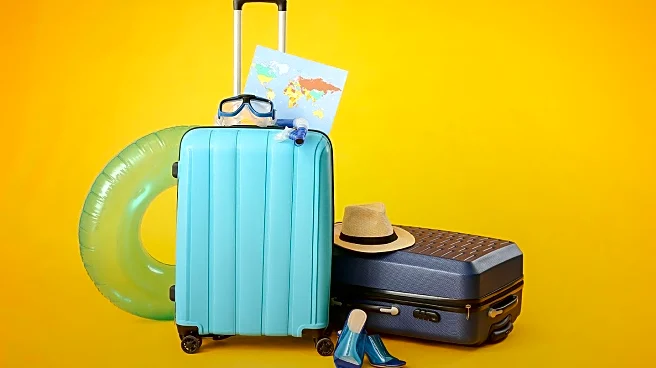What's Happening?
Recent studies indicate that senior travelers are leading in travel spending, with individuals over 65 spending an average of €568 per trip, significantly more than younger age groups. This trend is reshaping the tourism sector, as older adults use their
financial resources for upgraded travel experiences, such as business-class flights and luxury accommodations. The European Travel Commission highlights that post-pandemic travel spending has increased, with average trip costs rising from €334 in 2020 to €510 in 2023. This increase is attributed to inflation and pent-up demand, reflecting a recovering tourism industry. The data also shows that travel frequency peaks in midlife, with the 25-44 age group traveling the most, driven by career stability and family life.
Why It's Important?
The growing travel spending among seniors is significant for the tourism industry, as it suggests a shift towards more personalized and luxurious travel experiences. This demographic's financial capability allows for greater customization in travel offerings, which can lead to increased revenue for tour operators and hospitality businesses. Additionally, the trend highlights the importance of catering to diverse generational preferences, with younger travelers seeking cost-effective options and older travelers opting for comfort and enrichment. The rise in travel spending also indicates a robust recovery in the tourism sector, which is crucial for economic growth and job creation in related industries.
What's Next?
Tour operators and travel businesses may need to adapt their offerings to cater to the distinct preferences of different age groups. This could involve creating all-inclusive packages for younger travelers and culturally rich excursions for older adults. As travel trends continue to evolve, businesses must focus on customization and flexibility to meet the diverse needs of travelers. Additionally, the industry may see increased demand for sustainable and eco-friendly travel options, as concerns about climate change influence consumer choices.
Beyond the Headlines
The trend of increased travel spending among seniors may also have cultural implications, as older adults seek meaningful and enriching experiences. This could lead to a greater appreciation for cultural heritage and local traditions, fostering cross-cultural understanding and exchange. Furthermore, the rise in solo travel among retirees suggests a growing desire for independence and self-directed exploration, which may influence how travel experiences are marketed and designed.















